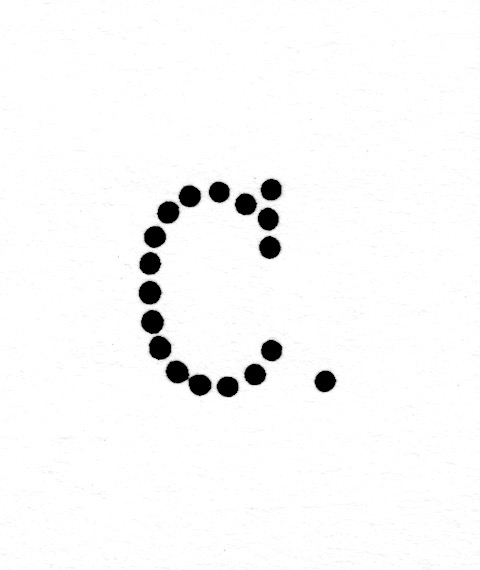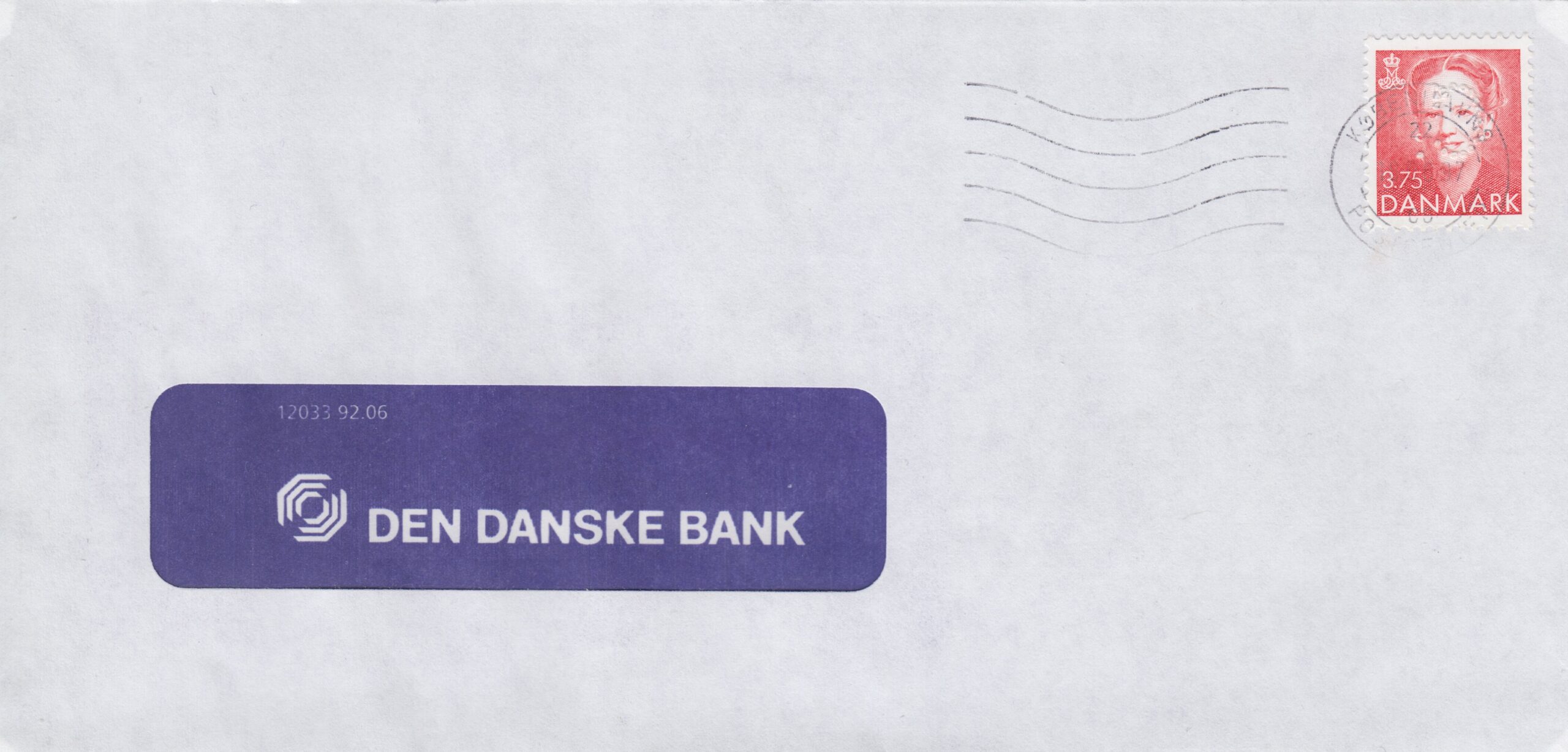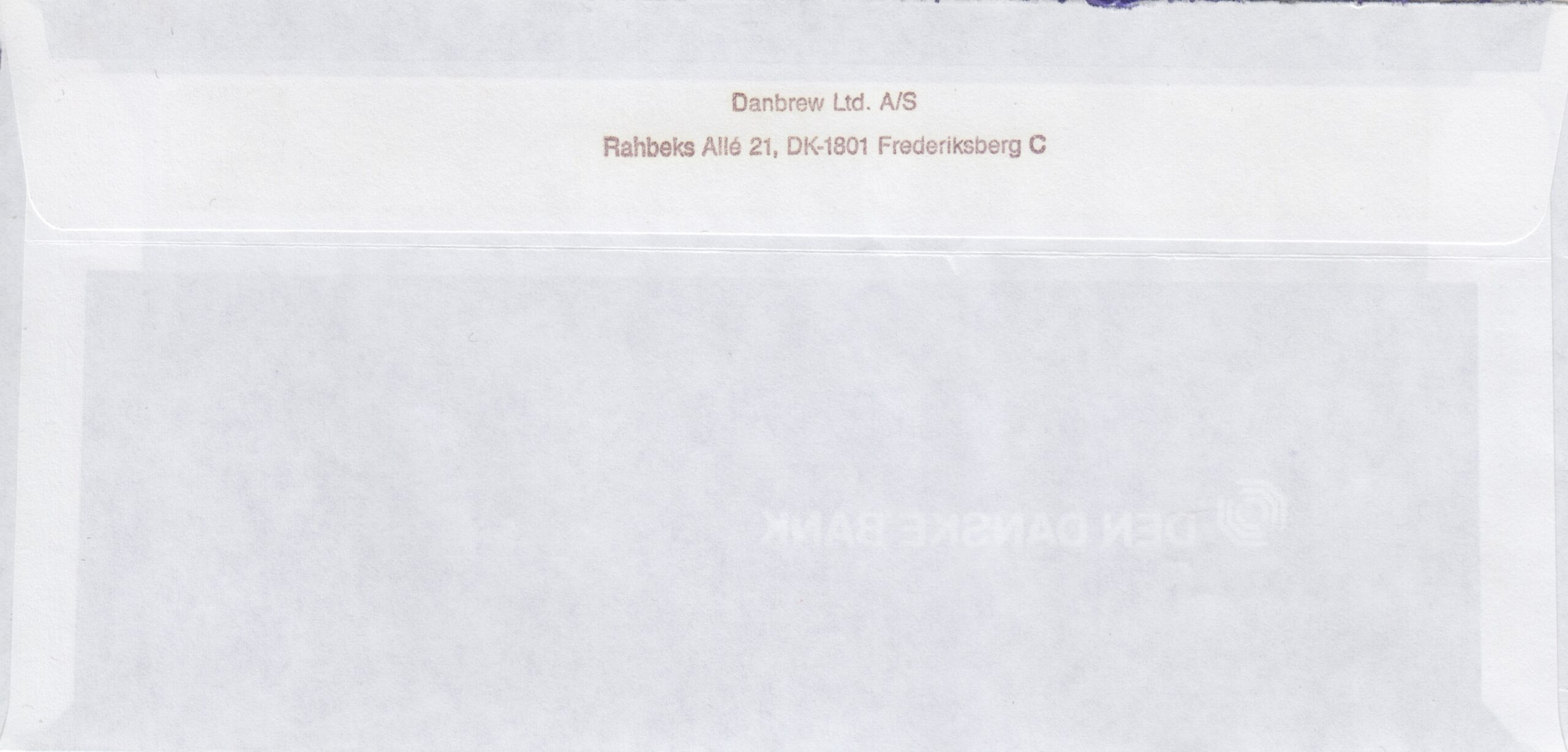Domestic letter with perfin “C.” in the stamp. The letter is franked correctly with 3,75 kr, which was the rate for domestic letters from June 15th 1992 to December 31th 1998. The stamp is cancelled August 18th 1997 with TMS Neutral Københavns Postcenter
C 03 Carlsberg Bryggerierne
Danbrew Ltd. A/S
Rahbeks Alle 21
1801 Frederiksberg C

GPD: 3417 af 05.1905
“C.” has been seen used in the period from November 1903 to September 1997
Needles
17.
Known positions
| * | * | * | * |
| * | * | * | * |
Green indicates the Perfin position on the current item.
Carlsberg was founded by J. C. Jacobsen, a philanthropist and avid art collector. With his fortune he amassed an art collection which is housed in the Ny Carlsberg Glyptotek in central Copenhagen. The first brew was finished on 10 November 1847, and the export of Carlsberg beer began in 1868 with the export of one barrel to Edinburgh, Scotland. Some of the company’s original logos include an elephant, after which some of its lagers are named, and the swastika, the use of which was discontinued in the 1930s because of its association with political parties in neighboring Germany.
Jacobsen’s son Carl opened a brewery in 1882 named Ny (New) Carlsberg forcing him to rename his brewery Gamle (Old) Carlsberg. The companies were merged and run under Carl’s direction in 1906 and remained so until his death in 1914.
Jacobsen set up the Carlsberg Laboratory in 1875, which worked on scientific problems related to brewing. It featured a Department of Chemistry and a Department of Physiology. The species of yeast used to make pale lager, Saccharomyces carlsbergensis, was isolated by Emil Christian Hansen at the laboratory in 1883 and bears its name; this was shared freely by Carlsberg. The Carlsberg Laboratory also developed the concept of pH and made advances in protein chemistry. In 1972, the Carlsberg Research Centre was established and the Carlsberg Laboratory is an independent unit of the Centre.
In 1876, J.C. Jacobsen established the Carlsberg Foundation, run by trustees from the Royal Danish Academy of Sciences and Letters, which managed the Carlsberg Laboratory as well as supporting scientific research within the fields of natural sciences, mathematics, philosophy, the humanities and social sciences in Denmark. Because of a conflict with his son Carl, Jacobsen’s brewery was left to the Foundation upon his death in 1887.



